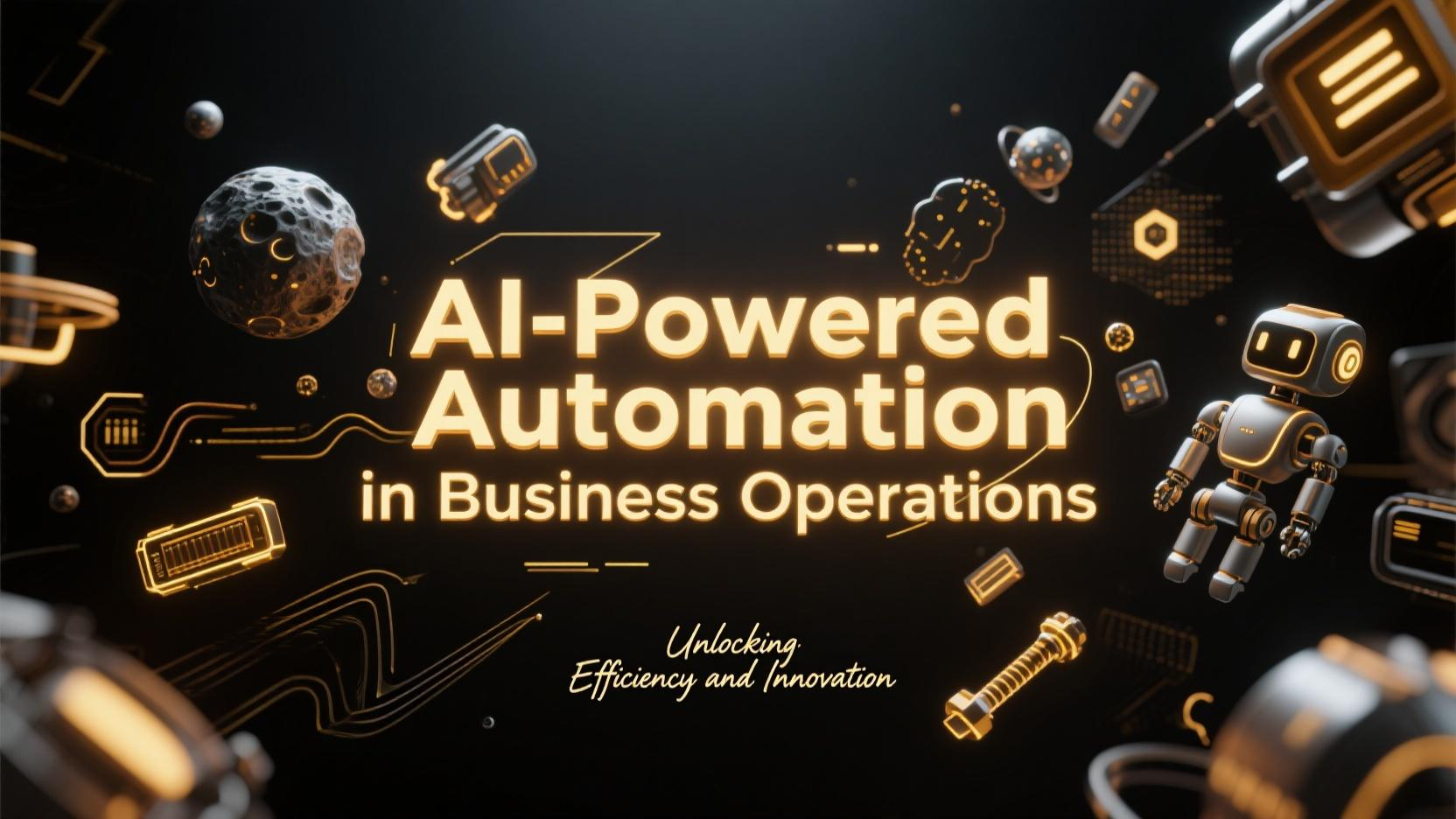The Power of AI in Streamlining Operations and Driving Innovation
As competition intensifies and market demands evolve, businesses are increasingly turning to AI-powered automation to optimize operations and drive innovation. AI is not just about improving productivity — it’s about transforming how businesses operate, enabling them to be more agile, more cost-effective, and more aligned with customer expectations.
AI in Workflow Automation — Reducing Human Error and Increasing Speed
AI can be embedded into a wide variety of business processes to streamline workflows and reduce human error:

Robotic Process Automation (RPA) handles repetitive tasks such as data entry, scheduling, and basic reporting
Natural Language Processing (NLP) is used for automating customer service communications, such as email responses and live chat
Machine learning algorithms enable predictive maintenance, identifying faults in machinery before they lead to failure
UiPath, a leader in RPA, helps businesses automate manual tasks in sectors like finance, retail, and insurance, achieving cost reductions of up to 30%.
AI-Driven Decision Making — Enhancing Strategic Planning
AI’s ability to process vast amounts of data and generate actionable insights is revolutionizing decision-making at every level of the organization. By analyzing patterns in real-time, AI can:
Provide managers with accurate forecasts for sales, staffing, and inventory
Identify market trends and consumer behavior shifts that might not be immediately obvious
Offer customized business strategies based on data-driven predictions
For example, Zara uses AI to predict fashion trends and optimize inventory, reducing overstock by 50% and increasing sales by responding faster to consumer preferences.
AI and Innovation — Enabling New Business Models
AI doesn’t just optimize existing processes — it enables entirely new business models:
Subscription-based services: AI is used to manage and personalize subscription models in industries like fitness (e.g., Peloton) and entertainment (e.g., Netflix, Disney+).
On-demand services: AI helps create flexible, on-demand business models in areas like transportation (e.g., Uber, Lyft) and retail (e.g., Instacart).
By using AI to predict demand, automate logistics, and improve user experiences, businesses can develop innovative, scalable solutions that cater to the evolving needs of consumers.
AI in Supply Chain Management — Optimizing the Flow
In supply chain management, AI is changing the way goods are produced, stored, and delivered:

AI algorithms optimize routes for shipping, reducing fuel consumption and delivery times
AI-powered inventory management systems predict demand and stock levels with greater accuracy
Automated warehouses using robots (e.g., Amazon’s Kiva systems) ensure efficient picking and packing
This AI-driven optimization results in faster, more responsive supply chains that can adapt to market shifts and disruptions.
Key Takeaway
AI-powered automation is a game-changer for businesses seeking operational excellence and innovation. By optimizing workflows, enhancing decision-making, and creating new business models, AI is unlocking unparalleled efficiencies that give organizations a competitive edge.
